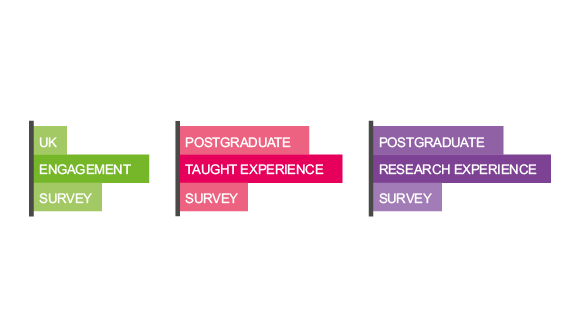
At all levels of study, women tend to report fewer opportunities for career preparation.
Among postgraduate researchers (PGRs) responding to PRES, fewer women agreed that they had received training to develop their transferable skills or received advice on career options. In terms of development opportunities, they were also less likely to have engaged with non-academic partners, for example in industry, throughout their programme. At postgraduate taught level, female PGTs were less likely than their male counterparts to say that they feel better prepared for their future career as a result of their course. Female undergraduates responding to UKES were less likely to have talked about their career plans with teaching staff or advisors.
Investigating the reasons why women tend to perceive fewer opportunities is a complex task. At sector level, institutions with higher than average proportions of female students may wish to look to broaden their career development opportunities available to students. It might also be that at discipline or course level different career preparation opportunities are available, and that institutions can look to improve provision across those courses chosen mainly by female students.
Postgraduate female students also tend to be less likely to feel they have had other skills development opportunities.
Among both research and taught postgraduates, as well as career skills, women tend to be less likely to feel they have developed other skills or had other development opportunities. Female postgraduate research students responding to PRES are less likely to say they have agreed a personal training or development plan, and they are also less likely to have had the opportunity to teach or demonstrate as part of their degree programme or to have had the opportunity to submit a paper for publication in an academic journal or book. Fewer women responding to PTES agreed that they had developed more confidence about independent learning as a result of their course, or confidence to be innovative or creative. Fewer female PGTs agreed their research skills and their ability to communicate information effectively to diverse audiences had developed.
That being said, among postgraduate researchers, there are areas in which female students are more likely to have had development opportunities than male students. Women PGRs are more likely to have presented a paper or poster at an academic research conference, and to have communicated their research to a non-academic audience.
Another area in which women report lower satisfaction than students of other genders is interacting with staff.
This is particularly the case among taught students. Fewer female respondents to PTES agreed they were happy with the support for their learning they received from staff on their course, and fewer female undergraduates who completed UKES said they had asked questions in taught sessions or contributed to discussions about course material in other ways, discussed their academic performance and/or feedback with teaching staff, discussed ideas from their course with teaching staff outside taught sessions, or worked with teaching staff on activities other than coursework.
As suggested in relation to career preparation, it might be that staff interactions vary by institutions, courses or disciplines with differing proportions of female students. The differences could also be linked to demographic differences [MP1] between women and those of other genders – for example, female undergraduate respondents to UKES were considerably more likely to spend time providing care for dependents than other students, which may mean they have less time to spend engaging with staff. Women responding to PTES were more likely to live with a partner and/or children so may also be more likely to have caring responsibilities. They were also more likely to live six or more miles from campus, so having a longer commute may prevent female students from spending that time engaging with staff.
Maddie Pitkin is Research and Insights Executive at Advance HE, working across PRES, PTES and UKES.
The Surveys & Insights Conference 2021: Adapting to challenging times, 28 April, will explore the key role surveys, measurement tools and qualitative research techniques have to play in capturing and understanding feedback. Find out more.